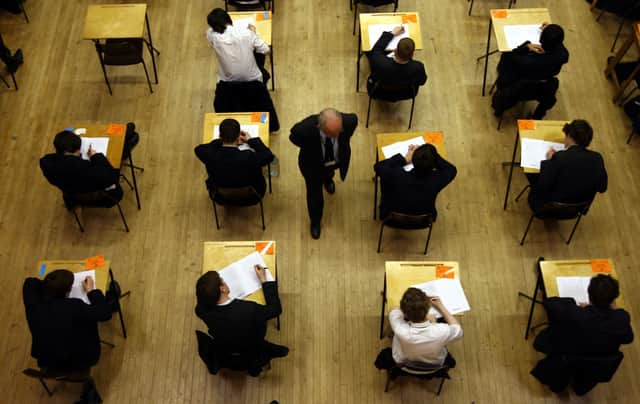Queen’s study shows teachers may be biased in giving out students’ grades


Academics from Queen’s University in Belfast and Goldsmiths University of London were involved in the international project that found evidence that some teachers base grading decisions on more than actual academic ability.
The research indicated that students perceived to be agreeable or conscientious were more likely to be treated favourably when it came to the allocation of grades.
The findings were based on a study of Russian students.
Advertisement
Hide AdAdvertisement
Hide AdResearchers looked at almost 1,200 students aged 14 to 18 who were participating in an educational programme for young people who excel in science, arts, sports and literature based at the Sirius University of Science and Technology in Sochi.
Over 2019 to 2020, the study compared Russian and maths grades assigned to students by teachers with grades awarded anonymously in state exams the following year.
Queen’s and Goldsmiths experts collaborated with academics from the Sirius University of Science and Technology.
Their findings have been published in a special issue of The Journal Of Personality And Individual Differences.
Advertisement
Hide AdAdvertisement
Hide AdOne of the lead researchers, Dr Kostas Papageorgiou from Queen’s said in a small, but significant, number of cases examined what differentiated student grades was not only actual ability but perceived personality characteristics.
Dr Papageorgiou, from Queen’s School of Psychology, said the study was the first of its kind to explore the connection between students’ academic ability and their personality and behavioural strengths and difficulties.
“It was interesting although perhaps not surprising that some teachers seem to award higher grades to students with more ‘desirable’ personality traits such as high agreeableness,” he said.
“These results suggest that teacher ratings might reflect some conscious or unconscious biases, such as judging more leniently the students that they perceive as more focused on school tasks, who are well behaved in interpersonal contexts and who are more emotionally fragile.
Advertisement
Hide AdAdvertisement
Hide Ad“It is worth considering that in a small number of cases what differentiates student grades is not only actual ability but perceived personality characteristics.
“However, the results of the study are not marked enough to say that this bias is making a huge difference to outcomes.
“Marking exams blindly and having a moderation system in place will definitely reduce the negative impact of this bias.”
Another finding of the research suggested that students identified as being narcissistic were less likely to exhibit behavioural problems.
Advertisement
Hide AdAdvertisement
Hide AdThe study also found that overly dominant personality traits, whether negative or positive, can have an adverse impact on academic achievement.
Professor Yulia Kovas from the Department of Psychology at Goldsmiths University of London said: “Investigating personality, behaviour and achievement in gifted adolescents is a powerful tool for understanding complex networks of associations among these characteristics.
“Our study shows that personality and behaviour contribute to achievement via multiple causal, evocative and mediating processes.”
Comment Guidelines
National World encourages reader discussion on our stories. User feedback, insights and back-and-forth exchanges add a rich layer of context to reporting. Please review our Community Guidelines before commenting.